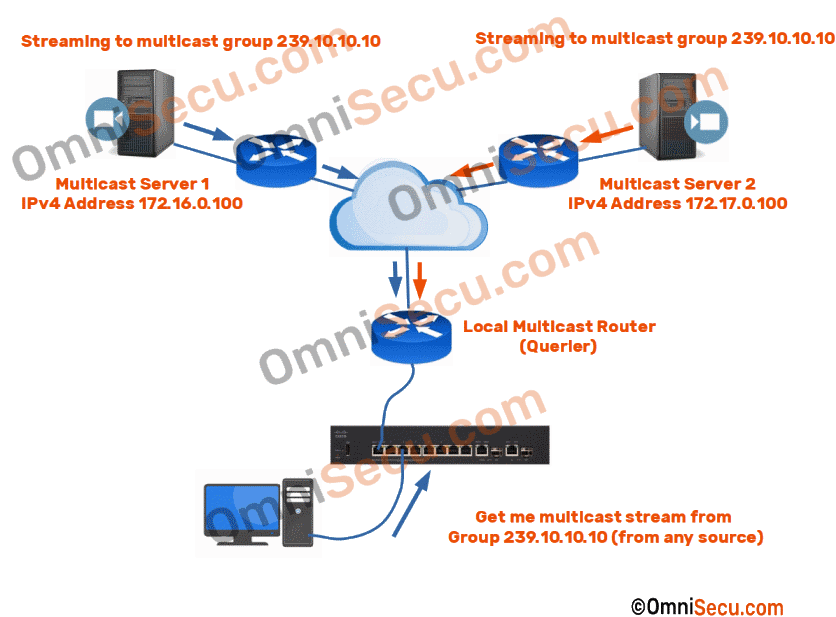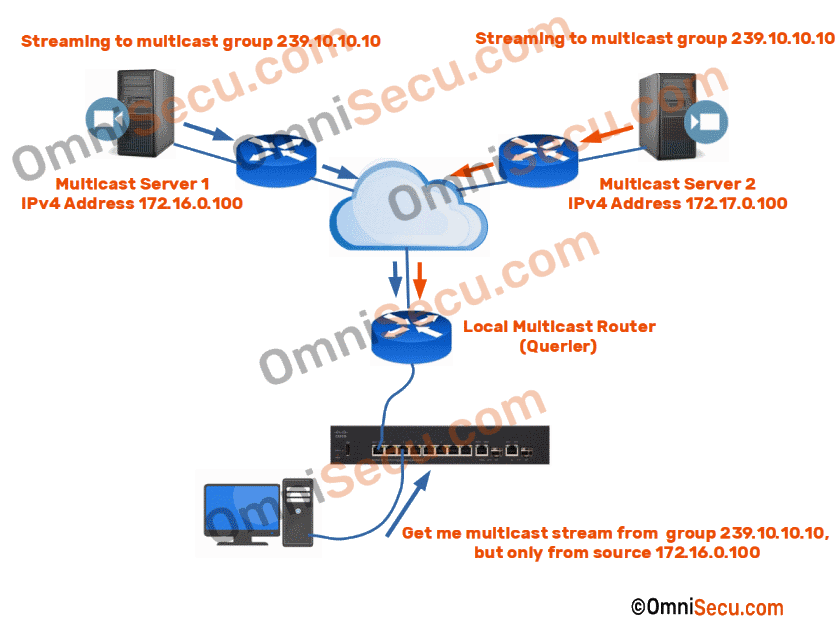What are SSM (Source-specific Multicast) and ASM (Any-source Multicast)
ASM (Any-source Multicast) was defined by the original multicast RFC 1112. Any-source Multicast (ASM) had support for many-to-many and also one-to-many models of multicast.
In ASM (Any-source Multicast), the multicast client does not know the sender. The multicast client is ready to accept multicast traffic from any source of a multicast group identified by a Class D multicast IPv4 address. In other words, the multicast client knows the IPv4 multicast group address, but not the source unicast IPv4 address. ASM (Any-source Multicast) has the burden of discovering many multicast sources that streaming to a particular group address.

Source-Specific Multicasting (SSM) allows the multicast clients to specify the unicast source address also, from where it want to receive multicast traffic. Please note that source address and group address are different. Normally represented by (S,G); where ’S’ represents the unicast source address and ’G’ represents the multicast group address.
In SSM (Source-specific Multicast), the multicast client knows the multicast group address and also the IPv4 unicast source address. In SSM, the receiver indicates the multicast group address and also the IPv4 unicast source address from where it wants to receive multicast traffic. Here the multicast data packets are delivered to a multicast client only originating from a specific IPv4 unicast source address requested by the receiver.

Please refer above image. The multicast client wants to join multicast group 239.10.10.10, but wants to receive multicast traffic only from source unicast IPv4 address 172.16.0.100. The multicast client can request the local multicast router that it wants the traffic belongs to group 239.10.10.10, but only from unicast source 172.16.0.100.
IGMPv3 has support for Source-Specific Multicasting (SSM).